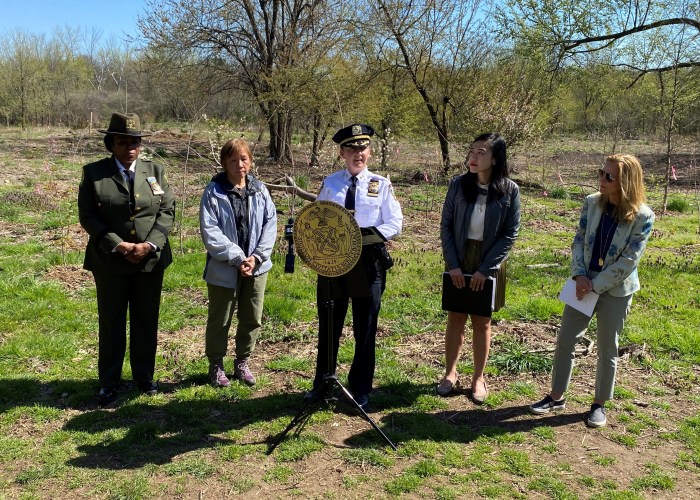By The Greater Astoria Historical Society
Business leader, civil servant and 1939 World’s Fair impresario Grover Aloysius Whalen was born in New York City June 2, 1886.
His father, an ardent Democrat and Tammany Hall supporter, named the boy after President Grover Cleveland. Best known for his management of the 1939 New York World’s Fair, Whalen was also a successful businessman, working as an executive for Wanamaker department stores and an early airline.
He served under a host of mayors, including an unsuccessful stint as police commissioner in the late 1920s. His exquisitely groomed moustache and carnation boutonniere were a fixture at ticker tape parades and social events as New York City’s official greeter from 1919-1953.
After graduating the prestigious DeWitt Clinton High School, Whalen showed remarkable versatility in his career from an early stage. After studying law, the ambitious New Yorker began his rise up the corporate ladder at Wanamaker’s department stores and the American Trans-Oceanic Co., an early airline which flew New Yorkers to the sunny climes of Florida.
Always with an eye open to new opportunity, Whalen volunteered for the successful 1918 mayoral campaign of John Hylan. The new mayor appointed his former campaign aide as chairman of the mayor’s Committee on Receptions to Distinguished Guests.
He began his new role by greeting Gen. John J. Pershing and the American Expeditionary Forces on their return from the Great War. Through his lengthy tenure, the chairman rode down the Canyon of Heroes alongside statesmen, including British Prime Minister David Lloyd George and President Dwight Eisenhower, and shook hands with Charles Lindbergh and other distinguished visitors to the Big Apple.
While continuing his career as a successful business executive, as a public servant this son of an Irish immigrant applied his business acumen to leave his mark on the city he called home. In 1922, he proposed the creation of a city-owned radio station, which resulted in the establishment of WNYC, one of the nation’s first radio stations. Although its transmitter atop the World Trade Center was destroyed in the Sept. 11, 2001, terrorist attacks, WNYC continues its broadcasts to New Yorkers to this day.
Whalen is perhaps less well-known for his record as police commissioner under Mayor Jimmy Walker from 1928-30. An unbending enforcer of prohibition laws known for saying “there is plenty of law at the end of a nightstick,” he was fired for his brutal crackdown on a March 1930 protest march on New York City by International Unemployment Day demonstrators.
On a more lasting note, he managed to establish the city’s Police Academy during his brief tenure.
The former commissioner was not out of work or out of the public eye for long, however. With the 1939 World’s Fair coming to the former ash dumps of Flushing in 1935, the face of New York was appointed by Mayor Fiorello LaGuardia to plan for the upcoming event.
In this capacity, he gained broader national recognition on the cover of a Time magazine issue covering the Fair, with the iconic Trylon and Perisphere structures behind him symbolizing his considerable feat.
The World’s Fair highlighted Whalen’s storied career in service of the city he loved, a career which spanned eight mayoral administrations from Hylan to Robert Wagner.
In March 1962, the 75-year-old Whalen watched unceremoniously from his balcony on East End Avenue as Manhattan celebrated another returning hero, Friendship 7 astronaut John Glenn.
Three weeks after watching the triumphant motorcade make its way down FDR Drive, Mr. New York quietly died in the city he loved and served for five decades.

































